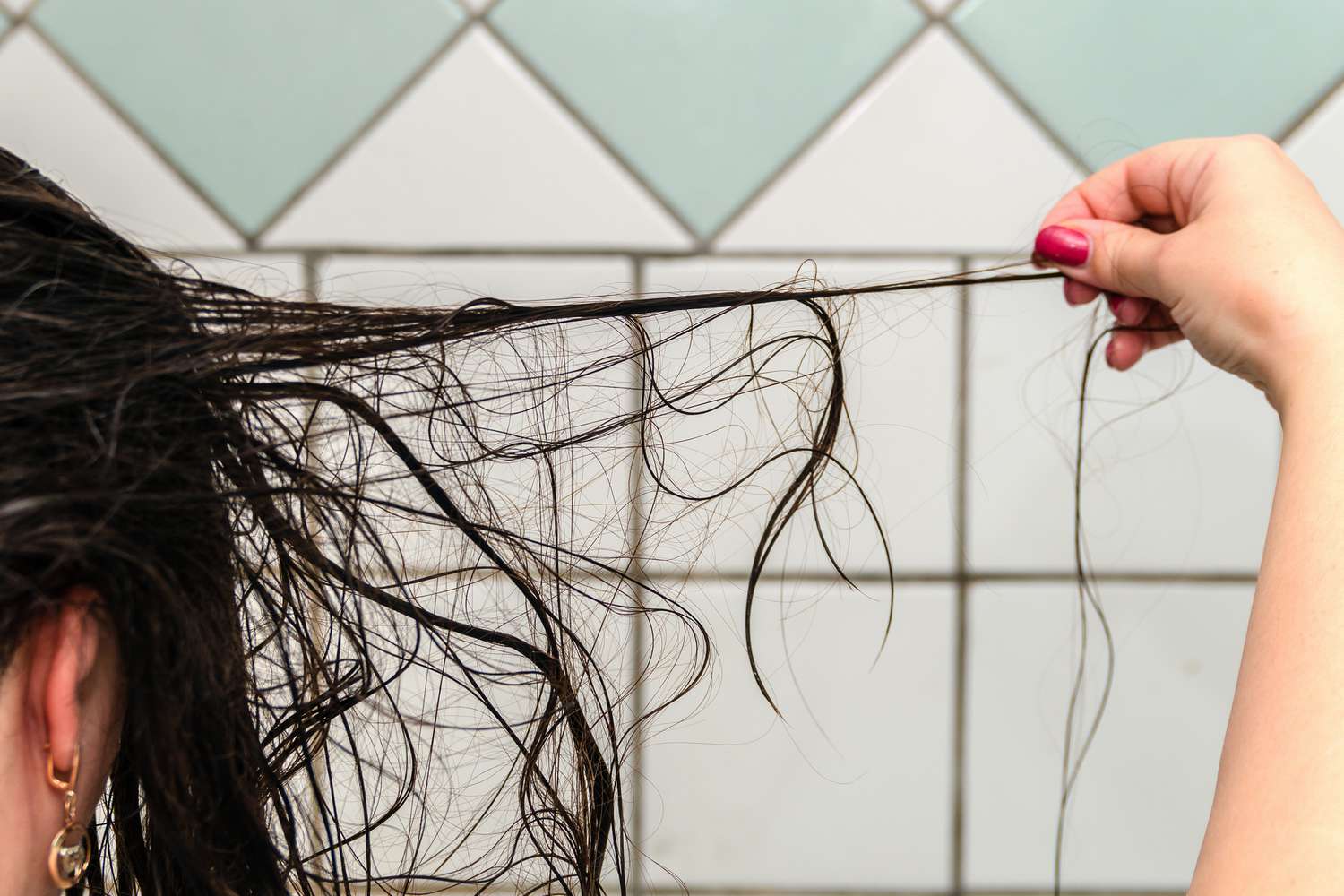Is shedding hair in the shower a normal occurrence? Find out what experts say

Q: I am always alarmed at the amount of hair I find floating in my shower. Is this a common occurrence, or should I worry?
A: Rest assured, you're not alone: There isn't a woman who hasn't experienced this phenomenon at least once. We've all been there.
Whether you stick the loose hair on the shower wall to clean up later, or ball it up and watch it swirl down the drain, we've all got one thing in common- the concern over losing hair.
Good news is on the horizon: Chances are, you're not losing as much hair as you believe. Julia Schwartz, MD, FAAD, a certified dermatologist and Ro's dermatology advisor, states that it's normal to lose up to 100 strands a day.
However, certain situations, such as suffering from alopecia areata, undergoing a cancer treatment, or lacking certain vitamins, can lead to more significant hair loss. Here we break down how you can distinguish if your hair loss levels are typical, when to consult a dermatologist, and tips on optimal hair care.
Reminder: Hair loss is not just normal - it's expected. In order to grow new hair, your body needs to get rid of the old.
Hair loss is also a natural symptom of aging. As we age, hair growth slows down, and some hair follicles stop producing new strands. This form of hair loss, androgenetic alopecia (usually known as male- and female-pattern baldness) happens to virtually everyone. Male hair loss commonly occurs at the temples or the head's top, whereas women notice the hair thinning, resulting in a more visible scalp.
Everyone experiences hair loss at different rates; therefore, what's considered 'normal' is based on individual experiences. If you notice a large amount of hair falling out but your scalp isn't more visible, it is likely the normal cycle of hair growth and shedding.
Schwartz says the following signs could indicate a potential healthcare issue that should prompt you to see a dermatologist or healthcare provider:
If you're considering altering your hair washing routine due to the amount of hair you're losing in the shower, I can empathize. (Fewer hair washes equals less hair loss, right?)
However, your shower regimen probably doesn't significantly influence your hair loss.
“Hair washing can heighten your awareness of shedding hair. Running your fingers through your hair often results in detached strands. It’s not that people lose more hair in the shower,” says Schwartz.
But that doesn't mean you should be rough with your hair on wash days.
“Wet hair is more susceptible to hair loss when brushed or combed after a shower,” warns Schwartz. She advises being more gentle when untangling knots after shampooing and conditioning.
Being gentle when caring for your hair can help prevent additional hair loss — that means avoiding harshly scrubbing your scalp, no roughly combing tangled hair, and gently towel-drying your hair.
While there's no surefire way to avoid hair loss entirely, there are ways to take care of your hair health and possibly lessen hair loss, according to Schwartz. These steps include:
If hair loss continues and a dermatologist or other healthcare provider is consulted, they may suggest minoxidil, an FDA-approved over-the-counter medication known to promote hair growth.




